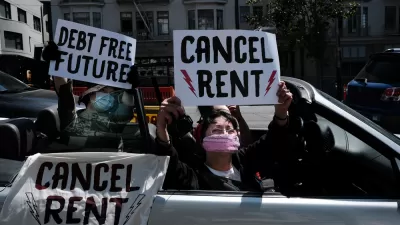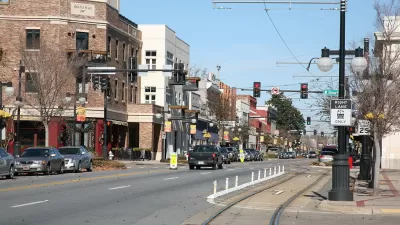The oil and gas industries want to see wastewater regulations loosened as they consider pumping the water into streams and rivers.

The Environmental Protection Agency is looking into making it easier for oil and gas companies to put wastewater from oil drilling into river and streams. The practice is currently permitted under federal law, but drillers rarely do it as the costs involved in treating the wastewater to meet mandated water standards is high.
“The primary question facing the EPA is whether water standards can be adjusted so oil and gas companies can economically treat wastewater to be pumped into the water supply without contaminating drinking water supplies or killing off local wildlife,” reports James Osborne.
The oil industry is facing the challenge of what to do with the large amounts of wastewater produced from drilling. Seismic and geological concerns about the effects of pumping the water back into the ground have forced operators to send wastewater to disposal sites.
Environmental advocates say the EPA does not have the scientific information about treating wastewater that it needs to make an informed decision. Still, oil and wastewater industry lobbyists are pushing for an ease on regulations. “Their primary case to the EPA is that the treated wastewater could provide a valuable resource for drought-ravaged water supplies in the western United States, with potential uses for agriculture and industry, and even drinking water supplies,” says Osborne.
FULL STORY: EPA weighs allowing oil companies to pump wastewater into rivers, streams

Planetizen Federal Action Tracker
A weekly monitor of how Trump’s orders and actions are impacting planners and planning in America.

Chicago’s Ghost Rails
Just beneath the surface of the modern city lie the remnants of its expansive early 20th-century streetcar system.

San Antonio and Austin are Fusing Into one Massive Megaregion
The region spanning the two central Texas cities is growing fast, posing challenges for local infrastructure and water supplies.

Since Zion's Shuttles Went Electric “The Smog is Gone”
Visitors to Zion National Park can enjoy the canyon via the nation’s first fully electric park shuttle system.

Trump Distributing DOT Safety Funds at 1/10 Rate of Biden
Funds for Safe Streets and other transportation safety and equity programs are being held up by administrative reviews and conflicts with the Trump administration’s priorities.

German Cities Subsidize Taxis for Women Amid Wave of Violence
Free or low-cost taxi rides can help women navigate cities more safely, but critics say the programs don't address the root causes of violence against women.
Urban Design for Planners 1: Software Tools
This six-course series explores essential urban design concepts using open source software and equips planners with the tools they need to participate fully in the urban design process.
Planning for Universal Design
Learn the tools for implementing Universal Design in planning regulations.
planning NEXT
Appalachian Highlands Housing Partners
Mpact (founded as Rail~Volution)
City of Camden Redevelopment Agency
City of Astoria
City of Portland
City of Laramie





























